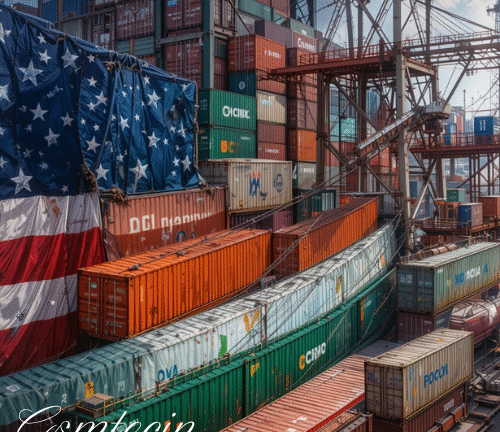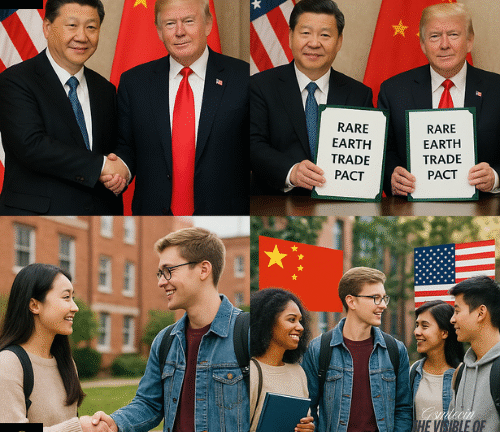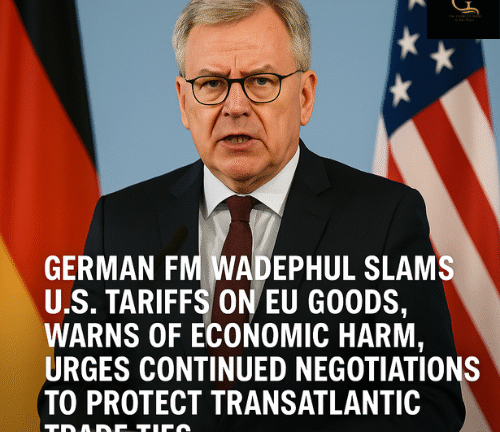In reaction to what it considers illegal safeguard charges imposed by the United States on Indian auto exports, India has officially informed the World Trade Organisation (WTO) of its plan to slap retaliation tariffs on a number of U.S. goods. The action strengthens India’s resolve to protect its economic interests internationally and signals a rise in trade conflicts.
New Delhi plans to raise duties on certain American-origin goods in order to halt concessions or obligations it owes the U.S. under WTO regulations, per a WTO notification that was circulated at India’s request. The purpose of these remedies is to mitigate the effects of a new 25% ad valorem charge that the United States has placed on passenger cars, light trucks, and specific auto parts that come from India.
Framed as safeguard measures, the U.S. tariffs were implemented without previous WTO notification, as is required by WTO regulations, and went into effect on May 3, 2025. According to India, the United States did not adhere to the 1994 General Agreement on Tariffs and Trade (GATT) and the Agreement on Safeguards, which regulate such actions. Notably, the United States violated procedural requirements by taking action without consulting India, although claiming to be protecting domestic industry.
According to India, the safeguard measures impact $2.89 billion in Indian exports per year, with the United States collecting an additional $723.75 million in penalties. India suggests levying a similar level of taxes on American imports in retaliation. Although the precise list of targeted U.S. commodities is still unknown, it is anticipated to include goods with significant political sensitivity and trade worth.
This action comes after India took a similar retaliatory action against U.S. steel and aluminium tariffs in June 2025. When taken as a whole, these acts show India’s larger plan to oppose U.S. unilateral trade actions, particularly those that lack transparency or WTO compliance.
Given that India and the United States are currently engaged in intensive negotiations on a possible interim trade agreement, the development occurs at a sensitive moment. Even while both countries have advanced their defence and strategic collaboration, commercial disputes still taint their relationship. India’s most recent WTO application might put more pressure on Washington to reevaluate its safeguards and resume fruitful talks.
India’s action further solidifies its standing as a steadfast supporter of rules-based international trade by sending a message to other WTO members that it is ready to use multilateral processes to protect its trade rights.




